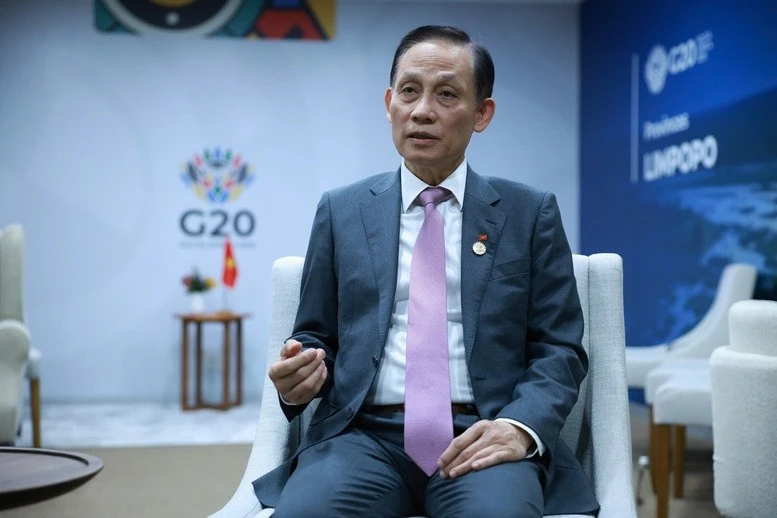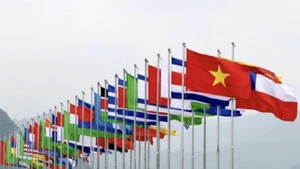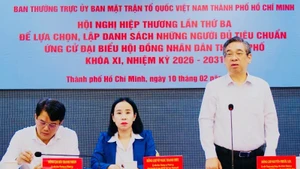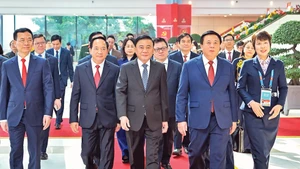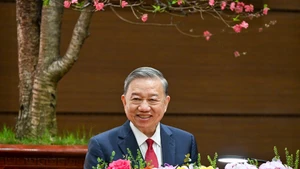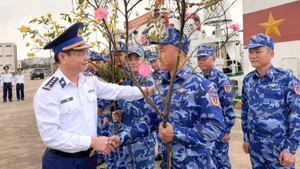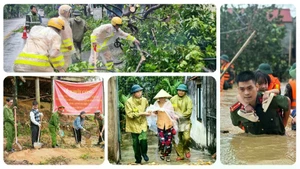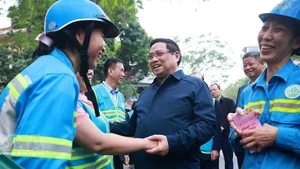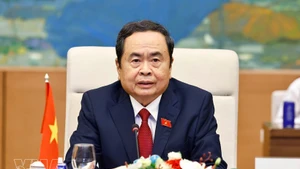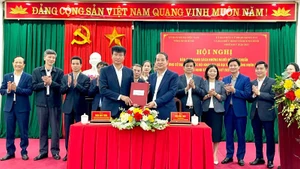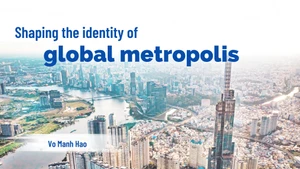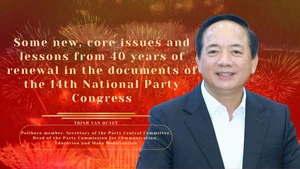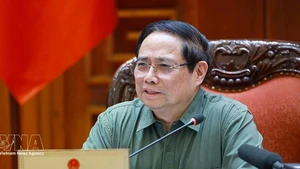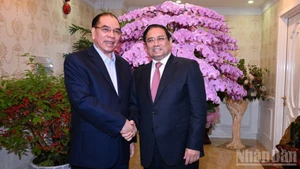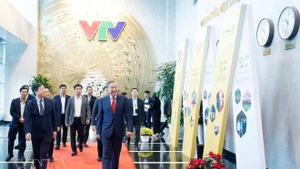Highlighting key results of the trip, Trung said it followed a dynamic year of high-level external engagement with the Middle East–Africa region. He noted that the visit featured an exceptionally hectic schedule ranging from meetings with heads of state, government, and parliament, as well as leaders of political parties to engagements with major economic groups, policy addresses, cultural and historical events, and meetings with Vietnamese communities in all three countries.
Alongside the PM’s programme, Vietnamese ministries and agencies also held highly effective working sessions with partners in each country.
According to the minister, Viet Nam and all three countries agreed to upgrade relations to Strategic Partnerships, making Kuwait, Algeria and South Africa the first three strategic partners of Viet Nam among the 70 countries in the region. Viet Nam thus becomes part of these nations’ networks of priority strategic partners. More than ten cooperation agreements were signed, which helped consolidate traditional friendships while opening new avenues for collaboration.
The FM highlighted the sincerity shown by leaders of all three countries.
He added that all three destinations held important geo-strategic positions and were undergoing significant shifts. South Africa is serving as G20 Chair for 2025 and hosting the G20 Summit in Africa for the first time. Algeria, a non-permanent member of the UN Security Council for 2024–2025, has remained an influential voice in North Africa and the Mediterranean and is Africa’s third-largest economy. Both South Africa and Algeria have maitained a tradition of solidarity with Viet Nam. Kuwait has held key responsibilities within the Gulf Cooperation Council (GCC) in 2025 and served as a gateway for finance, energy and ASEAN–GCC connectivity, being the first Gulf state to establish diplomatic ties with Viet Nam.
Trung said the visit helped consolidate cooperation in areas of existing strength while opening new strategic fields for Viet Nam such as energy and petrochemicals, agricultural and fisheries processing, mineral cooperation, investment, promoting free-trade frameworks, deeper participation in GCC and African supply chains, attracting Gulf capital, science and technology, innovation, digital transformation, defence, security, direct air routes, visa facilitation and people-to-people ties.
Regarding the G20 Summit, Trung noted that this was the second consecutive year Viet Nam has been invited, despite not holding the rotating chair of any major multilateral mechanism – a reflection of Viet Nam’s rising profile and recognition of its contributions. The summit, attended by 40 countries at the highest level and over 20 international organisations, took place amid complex global political, security, and economic challenges. Participants stressed the need to uphold multilateralism, coordination and solidarity. Leaders adopted a declaration and several cooperation mechanisms addressing global concerns such as sustainable development, inclusive growth, trade, investment, climate change and natural disasters – issues of direct relevance to Viet Nam.
PM Chinh delivered remarks highlighting the need for strengthened international solidarity and sustainable development. Viet Nam’s messages drew delegates' attention, given the country’s socio-economic achievements, comprehensive development orientation, and recognised potential in critical minerals. The PM emphasised the need to reinforce existing mechanisms, push for reforms, and maintain peace and stability as key prerequisites for sustainable development.
On the margins of the summit, despite limited time, PM Chinh met with leaders from 30 countries and international organisations to discuss Viet Nam’s development pathway, institutional reforms, achievements, and priorities. He also engaged in policy dialogues with leaders and businesses across the three host countries, promoting deeper understanding and confidence in political, trade and investment cooperation. Trung said discussions spanned agriculture, industry, innovation, technology, digital transformation, as well as defence and security – all aligned with Viet Nam’s development needs and the interests of partners.
He remarked that Viet Nam’s participation contributed to an important global event consistent with its foreign policy of being an active and responsible member of the international community.
The minister also underscored the compassion expressed by foreign leaders and international organisations for the severe human and material losses caused by recent storms and floods in Viet Nam, and their willingness to support disaster recovery. The leaders shared a clear understanding of the need for joint efforts to tackle climate change and natural disasters.
Regarding implementation of the trip’s outcomes, the FM stressed the PM’s strong focus on ensuring that all agreements with international partners are delivered with concrete results.
He identified priorities for follow-up. First, he pointed to the need to elevate awareness across ministries, sectors and localities about the significance of substantive engagement with the Middle East and Africa which major opportunities despite differences and challenges. Diversifying partnerships and markets was essential for building an autonomous economy, particularly in areas such as technology, minerals and investment.
Second, Viet Nam and partner countries need to swiftly develop action programmes and specific plans to materialise the newly established Strategic Partnerships.
Third, existing bilateral cooperation mechanisms should be upgraded and new mechanisms established where necessary. Viet Nam and its partners discussed raising cooperation committees from deputy-ministerial to ministerial level and creating additional coordination frameworks to enhance collaboration among ministries, localities and businesses.
Fourth, he emphasised the need for timely dissemination of the trip’s outcomes to ministries, localities and enterprises so they could formulate plans and advance cooperation.
Fifth, regarding the G20, he underlined that despite global uncertainty, multilateral institutions remained essential. Countries and international organisations were proposing concrete mechanisms to strengthen multilateralism. Viet Nam, therefore, would need to persist and innovate in leveraging opportunities from multilateral frameworks such as the G20, both to contribute and to benefit from global cooperation.
He concluded that Viet Nam possessed the potential not only to draw advantages from these mechanisms but also to contribute meaningfully, in line with the foreign-policy direction set out for the 14th National Party Congress and ideas consistently stressed by Party General Secretary To Lam on active and responsible participation in addressing global issues while creating favourable conditions for national development.
